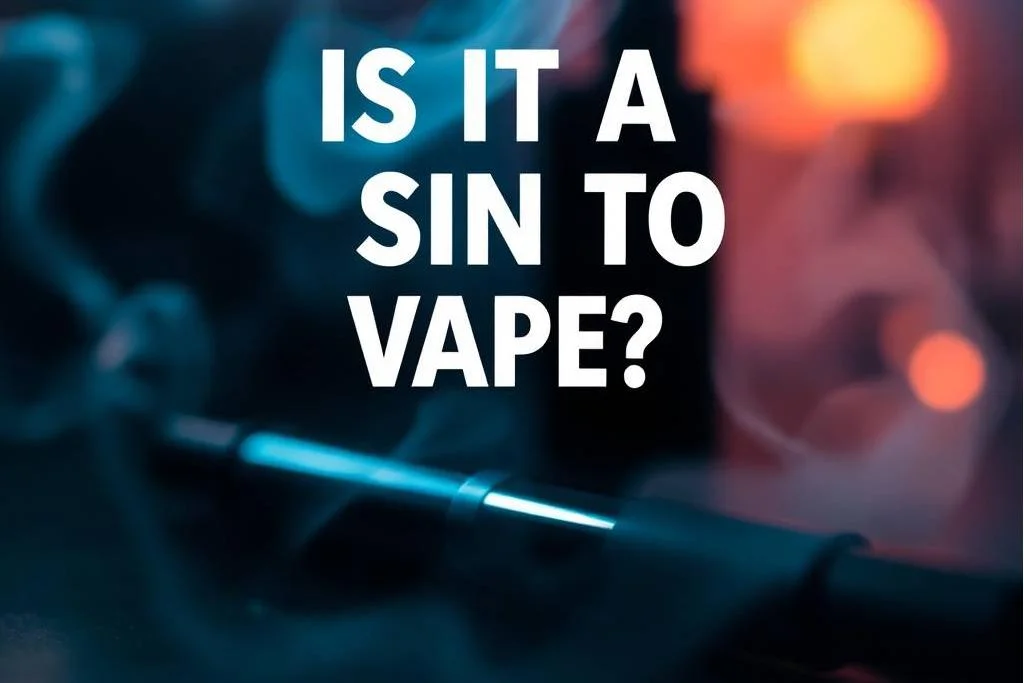IS IT A SIN TO VAPE?
Vaping has quickly become one of the most debated lifestyle choices in recent years. Beyond the health and legal questions, many people also ask: “Is it a sin to vape?” For those with strong religious or spiritual beliefs, the morality of vaping is as important as its physical effects. While some see it as a harmful act that disrespects the body, others argue that it isn’t directly mentioned in scripture and therefore falls into a gray area of personal judgment. This article explores how faith traditions view vaping, why the question arises, and what factors influence whether it may be considered sinful.
Religious Perspectives on Vaping
- Christianity Many Christians interpret vaping through the lens of biblical principles, especially verses about the body being a “temple.” If vaping is addictive or harmful, some believers see it as a sin. Others consider it morally neutral if used responsibly and without addiction.
- Islam Islamic scholars often compare vaping to smoking, which is generally discouraged or considered haram (forbidden) because it harms health. Opinions vary depending on nicotine content, but many scholars lean toward prohibition.
- Judaism Judaism emphasizes protecting life and health. Since vaping may pose health risks, some Jewish authorities caution against it, though views differ based on scientific evidence and intent.
- Hinduism & Buddhism Both faiths value discipline, non-harm, and purity. Practices that create addiction or harm health are often discouraged. While vaping isn’t directly addressed in sacred texts, the underlying principles lead many to view it negatively.

Factors That Influence Whether Vaping Is Seen as a Sin
- Addiction: Many faiths see addiction as a form of enslavement, which can be spiritually harmful.
- Health Risks: If vaping damages the body, it may be viewed as disrespecting life.
- Intent: Recreational use versus using vaping as a tool to quit smoking may affect how it’s judged.
- Community Values: Religious leaders and cultural norms within each faith can shape opinions.
Practical Guidance for Believers
If you are unsure whether vaping aligns with your faith, consider:
- Consulting your religious leaders for direct guidance.
- Reflecting on whether vaping supports or hinders your spiritual growth.
- Evaluating your intentions—are you vaping to break free from smoking, or is it a recreational habit?

Conclusion
So, is it a sin to vape? The answer depends on your religious tradition, personal intentions, and the guidance of your spiritual community. While vaping isn’t explicitly addressed in holy texts, many faiths caution against habits that harm the body or foster addiction. If you’re seeking clarity, the safest path is to reflect honestly, seek guidance from your leaders, and prioritize health and spiritual well-being.
FAQs
1. Does the Bible mention vaping?
No. The Bible does not mention vaping directly. However, principles about caring for the body and avoiding addictive behaviors are often applied.
2. Is vaping haram in Islam?
Most Islamic scholars consider vaping haram or at least discouraged because it harms health and can cause addiction, similar to smoking.
3. Can vaping be considered sinful if I only do it occasionally?
Occasional use may still be questioned depending on your faith tradition. Some argue intent and health impact matter more than frequency.
4. If I vape to quit smoking, is it still a sin?
Some religious leaders view this more leniently, seeing it as harm reduction. Still, it depends on whether vaping itself leads to ongoing addiction.
5. How do I know if vaping is against my religion?
The best step is to speak directly with your faith leaders and study your religious teachings to see how they apply to modern habits.




















